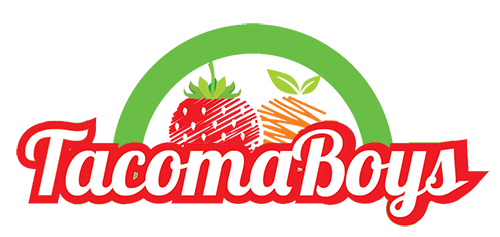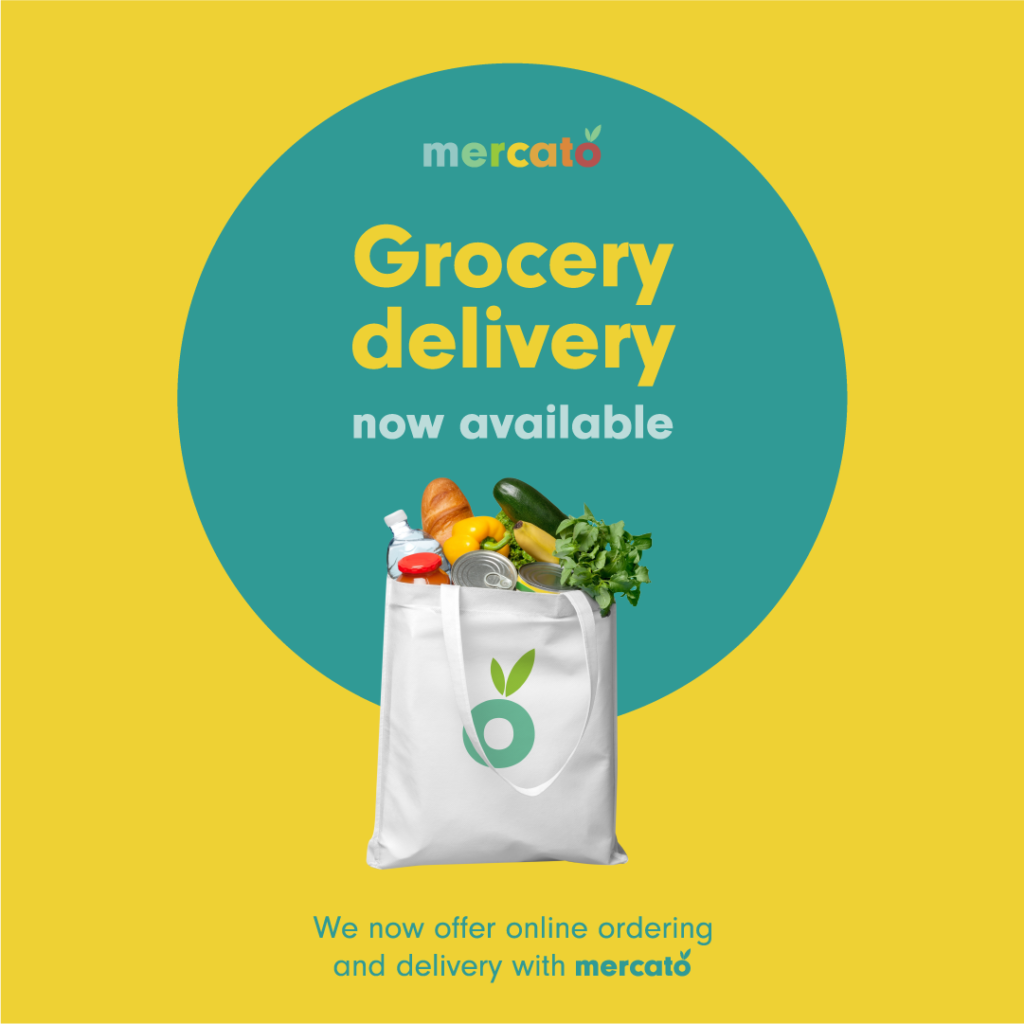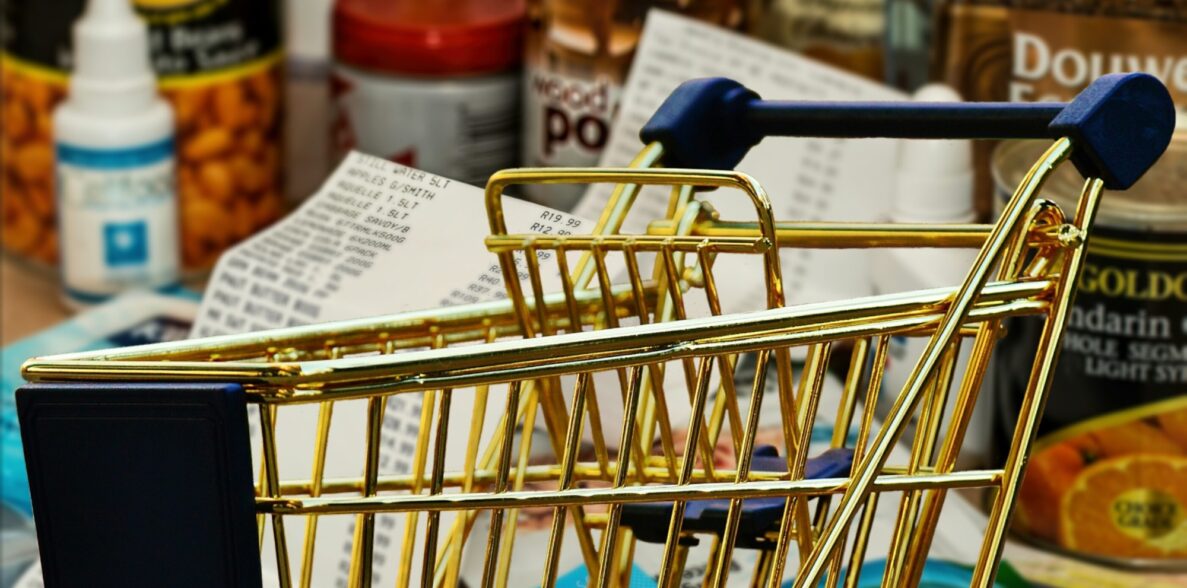

5 Tips for Sustainable Grocery Shopping in 2022
Sustainable grocery shopping is an important but easy part of eating and cooking. While it’s also easy to look the other way, simple actions like bringing your own reusable bags and shopping seasonally can help: Sustainable grocery shopping includes limiting the use of plastic you take home and making a couple changes when it comes to shopping habits. Simply put, sustainably grocery shopping is all about making your grocery trip less harmful on the planet and also less stressful for you.
Sustainable Grocery Shopping
When people make an effort to become more environmentally friendly, sustainable grocery shopping is often the first and easiest change to make. It’s something you do multiple times a week and is involved in day-to-day living. Regardless of your stance on environmental sustainability, everybody eats! So grocery shopping is an easy place to start in a move toward a healthier planet.
Sustainable grocery shopping aims to reduce the amount of waste produced by food manufacturers and merchants. One way to start shopping more sustainably is to opt for products with recyclable or no packaging when you can — Like produce, canned goods, sauces in glass jars, etc. Season your food with spices and sauces from recyclable containers, such as Stonewall Kitchen’s Curried Mango Grille Sauce, Boozy Bacon Barbecue Sauce, Sriracha Teriyaki Sauce, and more. For vegetable broth, Tacoma Boys offers a couple types of Better than Bouillon Broth Base to use instead of plastic containers of broth. And for general seasonings and spices, Spice Hunters offers ground and whole spices. Read on for 5 tips for sustainable grocery shopping in 2022!
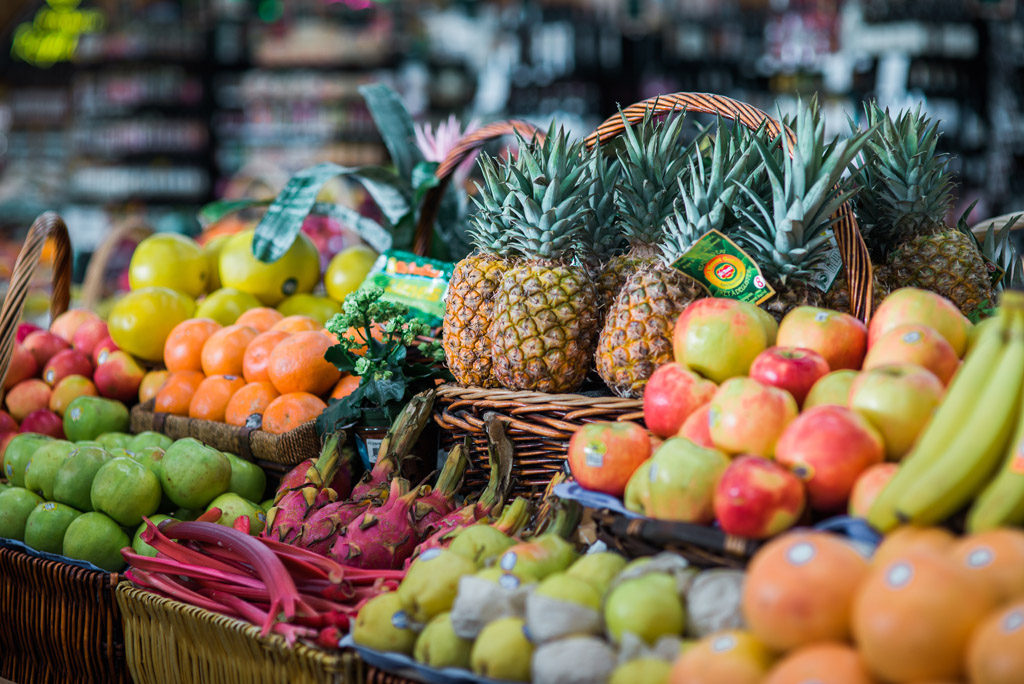

1. Shop Seasonal
Shop for fruits and vegetables that are in season near you. Instead of grabbing strawberries in the winter, go for apples or pears. Seasonal foods have to travel less distance and therefore require less packaging, too. Good thing Tacoma Boys keeps a stock of rotating seasonal produce available to enjoy no matter what time of year!
2. Plan Meals in Advance
When you know what you’re going to cook and eat for the week, you can make a grocery list. Then, stick to that list to avoid impulse shopping. Simply don’t buy what you don’t need. This especially includes fresh foods that may spoil soon. And when you have groceries for several meals ready to go, you’re also less likely to buy takeout, which saves money too!
3. Buy Less, More Often:
While this may sound counterintuitive, groceries like fresh produce and meat should be purchased in small quantities. Since fresh fruits and vegetables can spoil in just a couple days, it can be helpful to buy less to start. Then when you are almost out of a certain vegetable or fresh ingredient, you can buy it now knowing that it will be used. This may mean more trips to the grocery store, but saves vegetables before they reach the garbage bin.
4. Bring Reusable Grocery and Produce Bags
Here in Washington, the sight of a reusable grocery bag is not uncommon. The state banned single-use plastic carryout bags in October 2021 and implemented a small fee for paper bags. That means many people have begun to use reusable grocery bags or baskets anyway. But in addition to those big bags or baskets for your grocery load, think small too! Little cloth bags are great for produce and bulk foods. Reusable produce bags are becoming more common and can be used in place of plastic bags available in grocery stores’ produce section.
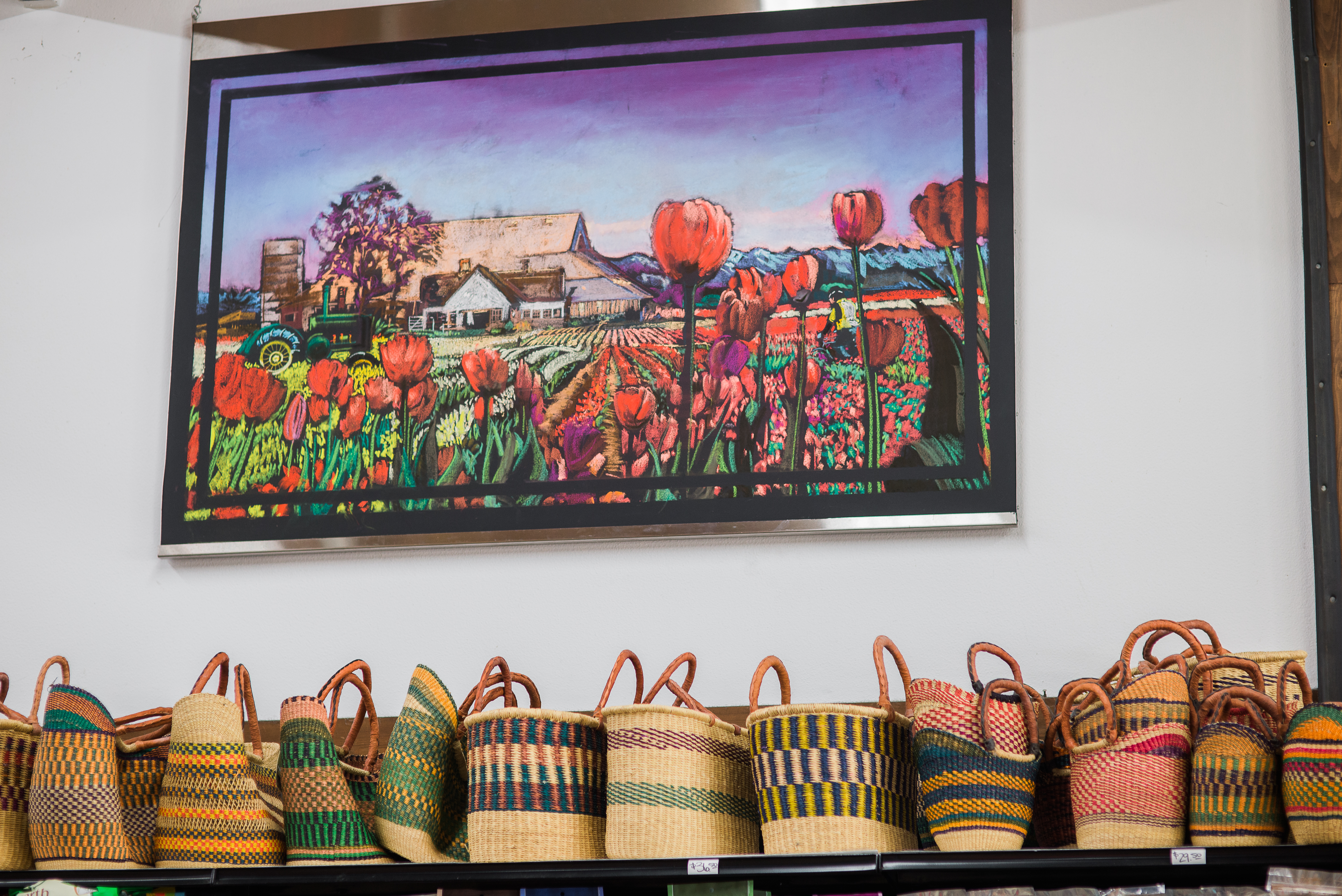

5. Shop Local
Shopping local also means shopping seasonal when it comes to fruit and vegetables. A variety of other locally grown or manufactured food products, from honey and jams, to meat and cheese, can be found at Tacoma Boys. These products require less emissions in the transportation process than nonlocal goods.
Local Grocery Shopping
Local grocery shopping means shopping at your local grocery store and reaching for locally grown or manufactured goods when meal planning. This can include seasonal produce and specialty food products. One reason shopping locally is more sustainable is because of the minimal miles the products have traveled to get to you. Plus, you can support your local economy and small businesses throughout the Pacific Northwest! Local grocery shopping can lead you to eating more seasonal produce and even trying new things.
When seasoning your food as previously mentioned, try to take local grocery shopping one step further with bulk amounts of Tacoma Boys own spices and seasonings — These will last longer than several small plastic containers of spices. For tea, try to avoid buying those single-use tea bags and instead grab loose leaf tea such as Tacoma Boys own tea blends.
And you don’t have to worry about excess packaging like styrofoam and plastic when you stop by our butcher counter: Choose the meat right from the case and get your selection hand-wrapped!
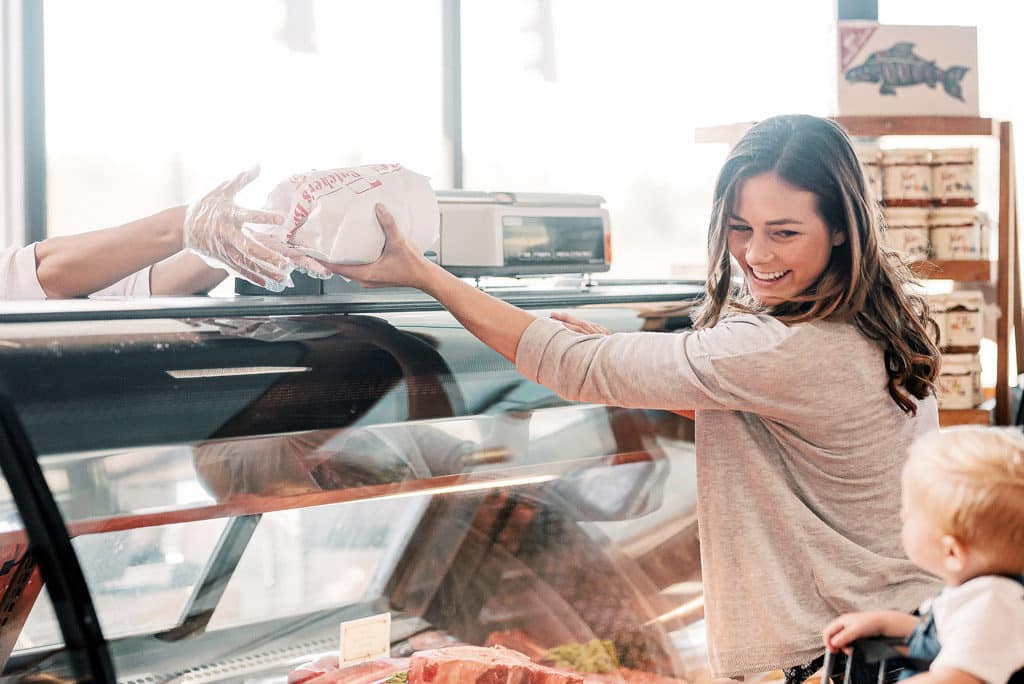

How to Reduce Food Waste
For more information, you can learn how to reduce food waste in our blog about vegetable scraps here! Tips like freezing leftover vegetables, composting, and making homemade stock can help you reduce food waste. According to the USDA, about 30-40 percent of the nation’s food supply ends up being discarded. It’s important to reduce food waste because this food could go to hungry people and requires resources to produce. This waste occurs at different stages of the supply chain and especially in the restaurant and food service industry— But it’s still up to individuals to do their part in reducing food waste at home.
When looking at how to reduce food waste in your own life, it may vary. Some people are prone to overbuying vegetables, while some may let leftovers go to waste. It’s important to be mindful of what you’re eating and cooking throughout the week to stay on top of this. Plan your meals around the produce and meat you have that will go bad if not used soon.
To stay up to date on insider deals and specials, sign up for Tacoma Boys’ text list. Just text (253) 246-1661 to tell Paul you want to be on the list!
